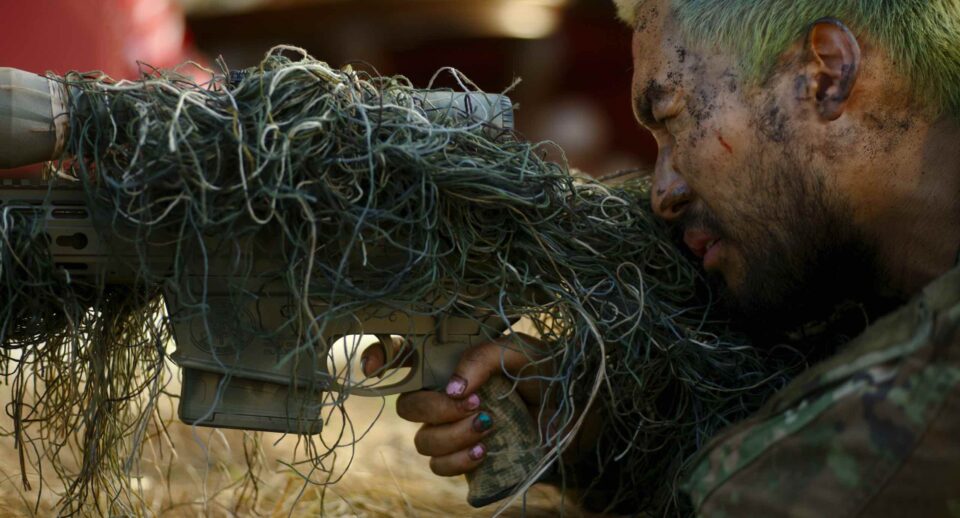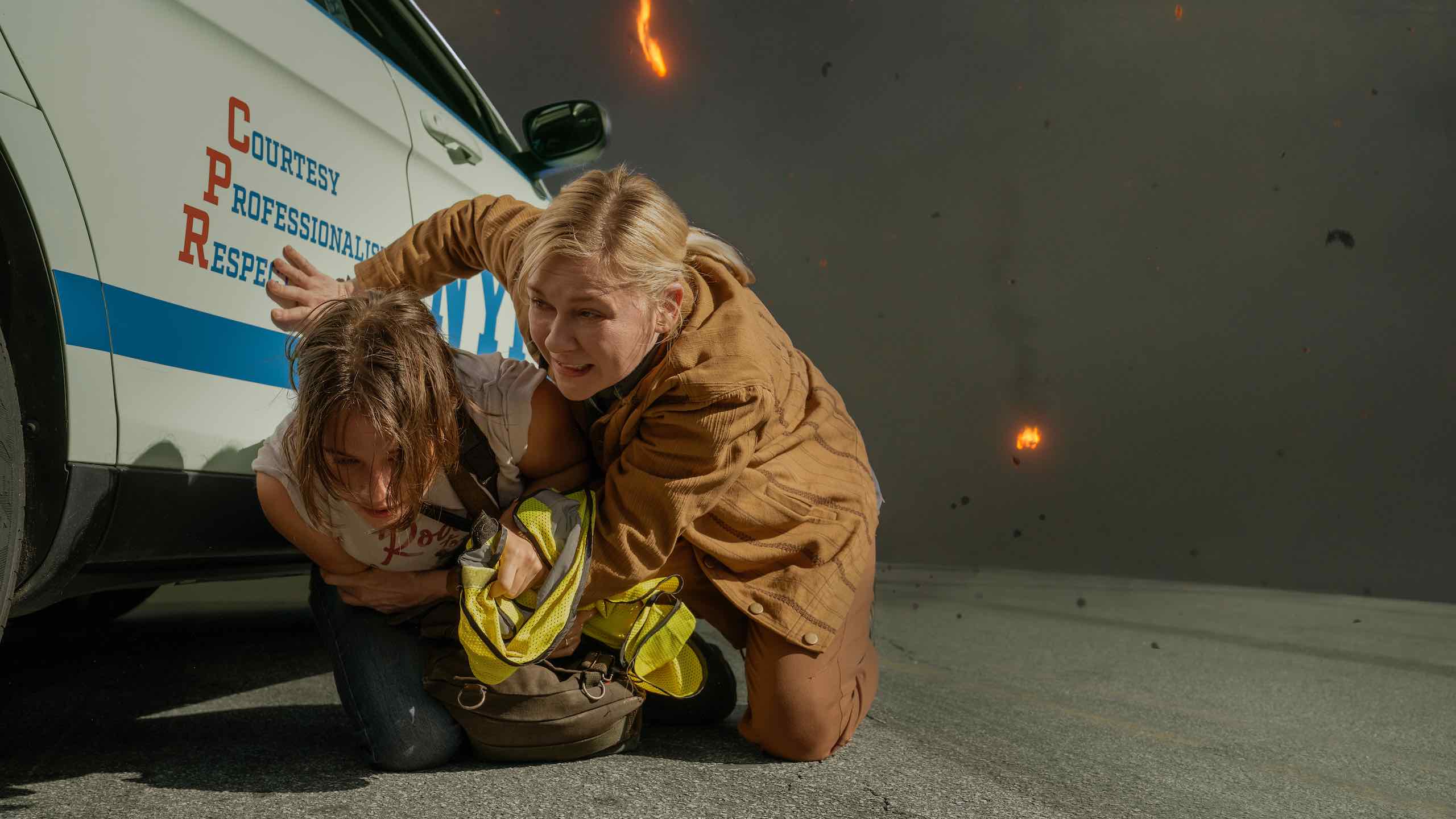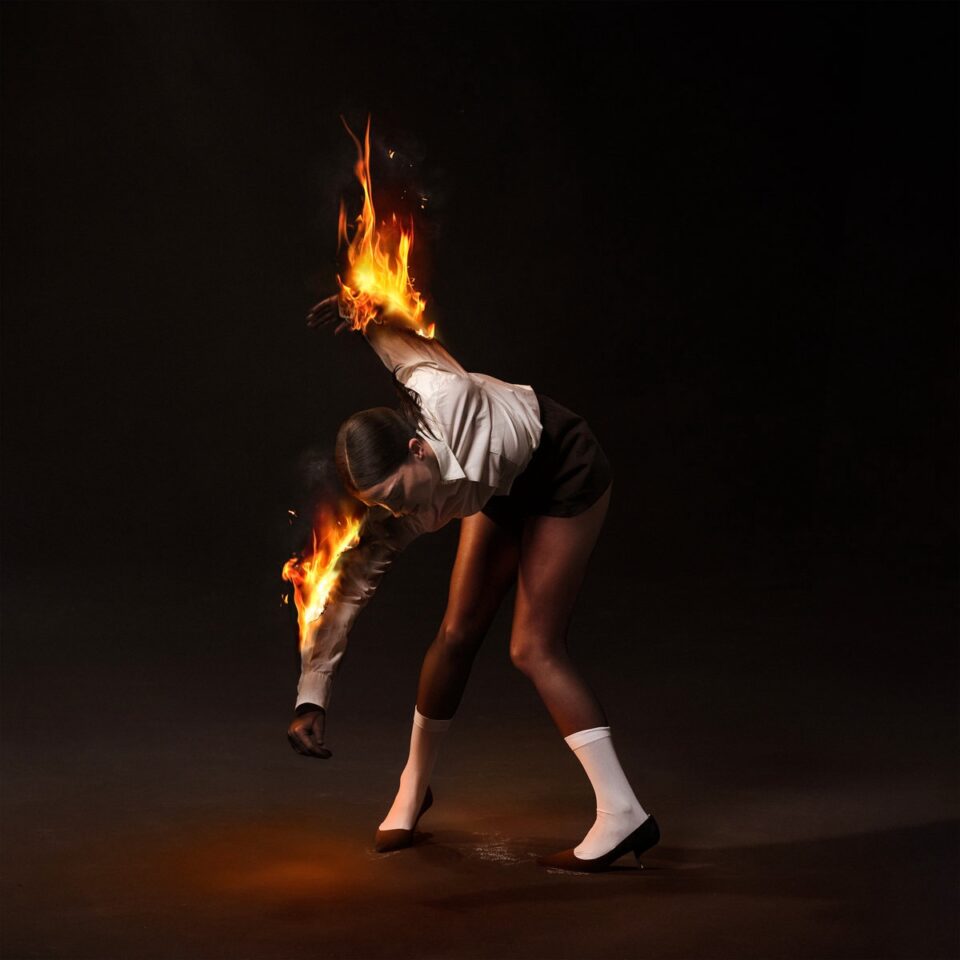There’s a lot to be said about the collective rubbernecking of our modern society. Whether we like it or not, the world has turned us all into largely unwilling witnesses, as unable to look away as we are to avoid everything happening everywhere at all times. Whether we can do anything about the things we see becomes secondary to simply surviving the omnipresence of images ranging from the absurd to the truly horrifying.
And who better to tackle such a topic than writer/director Alex Garland? No, I’m genuinely asking, because Garland, for all his charms and his faults, is quite a bold choice for the assignment. And, listen, this is coming from someone mostly in the bag for Garland as a director. Say what you will about his somewhat uneven filmography, but this man clearly has the juice. You might not want to subject yourself to the psychic slog of Men ever again; you might remain frustrated by the final moments of Annihilation; you might even find Ex Machina’s exploration of AI morally opaque; but you cannot deny his ability to poke and prod, to tell big stories in a bold way.
His latest film, Civil War, attempts to grapple with such weighty themes as PTSD, xenophobia, and the crumbling of American democracy in what is essentially an action-oriented road movie. While the film’s big-picture set up might read like grand, speculative fiction—in which America is embroiled in a civilian-fought war among factious, separatist armies representing, among others, the Western Forces and the Florida Alliance—the focus of the film is much more contained as it follows a group of journalists intent on embedding themselves deep within the conflict. Photographers Lee (Kirsten Dunst) and Jessie (Cailee Spaeny) and journalists Joel (Wagner Moura) and Sammy (Stephen McKinley Henderson) are soon thrown together as unlikely companions on a trip from New York City to Washington DC, where it’s expected that the sitting US President (Nick Offerman) will soon be forced to surrender. Garland gets all this out of the way in quick order, a fact aided by having both McKinley Henderson and Offerman, two ideal vehicles for hasty exposition, deal with the more ham-fisted dialogue.
The decision to not only center the film around journalists but make them essentially the only characters of note allows Garland to keep things entirely objective. Is the President bad? What does the rest of the world think? Are the separatists evil? Whose bloodshed is justified? As the seasoned Lee sternly notes to the starry-eyed Jessie, they aren’t meant to ask those questions. And so, in turn, the movie doesn’t either. More than anything, this is the choice that defines Garland’s film. Though the tension slowly ratchets up as our subjects (who are decidedly not heroes) move toward DC, very little else is ever revealed about the world aside from the violence that’s replaced every other form of political discourse. Though they are journalists, they aren’t really asking questions, their primary goal being pure documentation.
The decision to center the film around journalists allows Garland to keep things entirely objective. More than anything, this is the choice that defines the film.
There are times when this leads to narrative stagnation. Garland does his best to pepper in some well-rendered battle sequences, the dope to which these adrenaline junkies are so clearly drawn, but these moments are fleeting, replaced by a round robin of one-on-one conversations. Spaeny, Dunst, and McKinley Henderson are quite good in these quiet moments (Moura less so), but even at their best they start to read more like points being made by a director than human conversations. Jessie’s hopeful innocence, Lee’s damaged cynicism, Joel’s juiced-up bravado, and Sammy’s stoic wisdom all serve their purpose, but rarely feel like anything more than different sides of the same pair of coins.
As the foursome make their way toward the White House, and the stakes continue to build, you also start to feel the absence of any type of specified antagonist other than the generalized trauma of existing in a continuous war zone. When they do flirt with unabashed evil in the form of Jesse Plemons (essentially playing an older version of his breakout role in Breaking Bad), the movie momentarily becomes something else, driving home some bold points in bold lettering. Sure, the scene is more broad than the rest of the film, and just a little too on-the-nose, but it’s hard to deny its potency in comparison.

Maybe that’s the point. The scene with Plemmons leads fluidly into the film’s loud, striking, and excellently directed final set piece, and I can’t shake the feeling that Garland might be rubbing our noses in it. The closer we get to the conclusion, the shakier Lee’s notion of strict objectivity starts to become. Whatever their internal logic, these journalists simply can’t help themselves, and neither can we. Is the film trying to condemn us for our excitement? Trying to poke holes in our own titillation? These final moments—cravenly joyous and intimately horrifying—seem to suggest just that, giving us the kind of images we might scroll across if we were one of the millions of unseen Americans existing on one side or the other of this civil war. Surely we can’t be held responsible for not acting on every horrible image we see, but that doesn’t mean there isn’t a cost for watching.
Though I’m not sure Civil War can stand up under the weight of all that pressure, it’s an exciting thing for a $50 million movie to wrestle with. Which is why it’s such a shame Garland recently announced his retirement from filmmaking—a strange thing to do on a press tour. Garland’s films are polarizing in a way I find ultimately inoffensive, even one about a fractured America on the eve of what promises to be a terrible election. Sure, the critical civil war surrounding his latest feature might be a little exhausting, but surely Garland’s got a few more battles in him yet.









